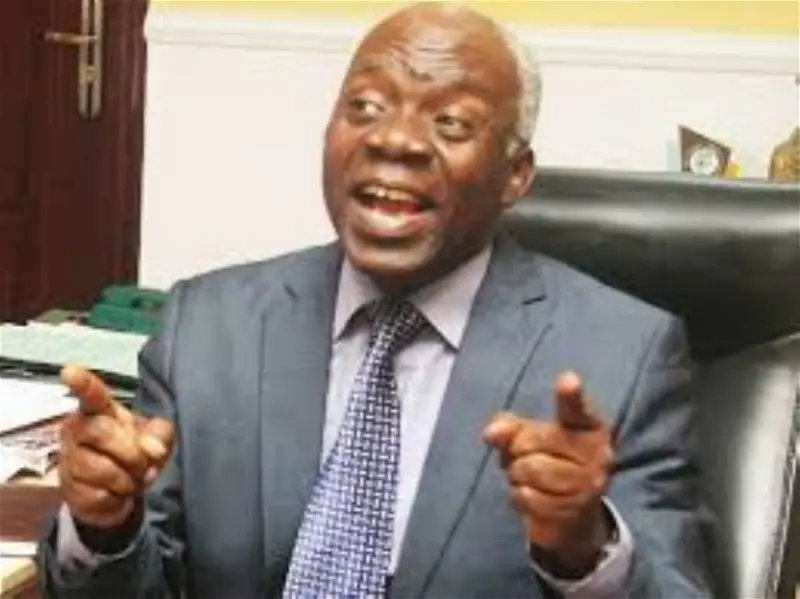Human rights lawyer, and Chair, Alliance on Surviving Covid 19 and Beyond (ASCAB), Femi Falana SAN at the weekend called on the Federal government to allow Nigerian victims of human rights abuse in other African countries have access to the African Court of Human and Peoples’ Rights.
According to Falana, Nigerians whose rights are abused in African countries cannot access the court because of the refusal of the Nigerian government to make the Declaration prescribed by Article 34 (6) of the Protocol for the Establishment of the African Court.
Falana said: “The African Court shall not receive any petition under article 5(3) of the Protocol which stipulates that relevant Non-Governmental Organizations (NGOs) with observer status before the Commission and individuals are empowered to institute cases directly before the Court in accordance with article 34(6) of this Protocol. The few member states of the African Union that have made the Declaration are Burkina Faso, Gambia, Ghana, Guinea-Bissau, Mali, Malawi, Niger and Tunisia”.
Below is the full statement:
The African Court on Human and Peoples Rights is a continental tribunal established by member states of the African Union to ensure protection of human and peoples’ rights in Africa.
The African court is composed of 11 judges nominated by member states of the AU and elected by the AU assembly of heads of state and government. The African Court complements the functions of the African Commission on Human and Peoples’ Rights.
As a leading member state of the African Union, Nigeria ratified the African Charter on Human and Peoples Rights in 1986. Nigeria domesticated the Charter via the African Court on Human and Peoples Rights (Ratification and Enforcement) Act Cap A9, Laws of the Federation of Nigeria, 2004. In addition, Nigeria is a state party to the Protocol establishing the African Court, having ratified it in 2004.
Mrs Stella Anukam, former Director of International Law Department in the Federal Ministry of Justice and former Director, Special Programmes at the Nigerian Institute of Advanced Legal Studies, has been re-elected as judge of the African court on human and peoples’ rights. Anukam was re-elected at the African Union (AU) mid-year coordination meeting executive council in Accra, Ghana, last Friday, for another term of six years.
Anukam’s reappointment has come on the heels of the appointment of another Nigerian, Mrs Abiola Idowu-Ojo as the Executive Secretary at the African Commission on Human and Peoples’ Rights (African Commission) on June 25, 2024. Before her appointment, she had served as the Commission’s Acting Executive Secretary since August 2023.
President Bola Tinubu has commended Judge Anukam for her contributions to the development of human rights jurisprudence on the continent and enjoined her to continue to bring her invaluable knowledge and insights to the African Court. However, it is pertinent to point out that Nigerian citizens whose human rights are violated in the member states of the African Union cannot access the African Court for legal redress due to the refusal of the Federal Government to make the Declaration prescribed by Article 34 (6) of the Protocol for the Establishment of the African Court.
The African Court shall not receive any petition under article 5(3) of the Protocol which stipulates that relevant Non-Governmental Organizations (NGOs) with observer status before the Commission and individuals are empowered to institute cases directly before the Court in accordance with article 34(6) of this Protocol. The few member states of the African Union that have made the Declaration are Burkina Faso, Gambia, Ghana, Guinea-Bissau, Mali, Malawi, Niger and Tunisia.
Therefore, in addition to the congratulatory message extended to Judge Anukam by President Tinubu, the Federal Government should proceed to make the Declaration prescribed by article 36(4) of the Protocol to enable Nigerian citizens whose human rights are violated in other African countries and the family members of those who are killed to seek legal redress in the African Court
Femi Falana SAN,
The Chair,
Alliance on Surviving Covid 19
and Beyond (ASCSB)




